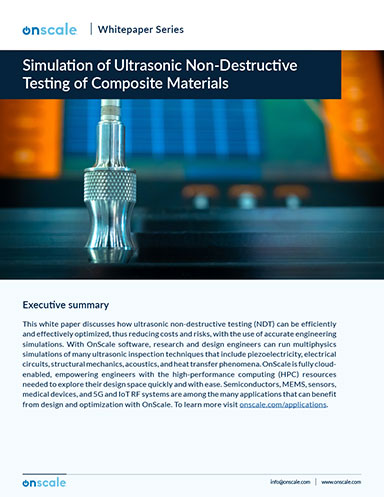
Altair Engineering’s FluxMotor platform offers a dedicated interface for the pre-design of electric rotating machines. Image courtesy of Altair Engineering Inc.
Latest News
June 21, 2017
It was 98 degrees as I watched two teenagers in dark blue corporate-issued polo shirts struggling to drag inside a supermarket one of those shopping go-carts crotchety Baby Boomers use to sneak up on you in the produce aisle. It’s kaput. Dead battery? Motor failure? Whatever. Designing electric motors is a tough business. Today’s Editor’s Pick of the Week sounds like it can make the job easier and faster.
Altair recently announced FluxMotor, a standalone tool for the pre-design of electric rotating machines.
 Altair Engineering’s FluxMotor platform offers a dedicated interface for the pre-design of electric rotating machines. Image courtesy of Altair Engineering Inc.
Altair Engineering’s FluxMotor platform offers a dedicated interface for the pre-design of electric rotating machines. Image courtesy of Altair Engineering Inc.“Pre-design?” you ask. That means it’s intended to help you define and create electrical rotating machines then assess their technical and economic potential quickly. Altair says you can get answers in minutes. In other words, this tool is designed so that you get yourself on the right pathway from the start and before you design-in inefficiencies you discover later in the process.
So what have we here? FluxMotor starts with a dedicated design interface that you use to build a rotating machine from standard parts like magnets. You can customize parts as well. It has four modes for adding windings, and they’re backed by some automated diagnostics for evaluating quality criteria. It has a scalable material database, and you can manage your own materials.
The pièce de résistance, however, sounds like it might be FluxMotor’s dedicated test environment for assessing motor performance. Here, it provides a number of predefined tests ready to run; standard and relevant test portfolios are available. You can control relevant test parameters, and it automatically illustrates results. You can also compare the data and performance results of several machines to see what looks like your best route.
FluxMotor is a member of Altair’s HyperWorks suite of high-powered CAE tools. As its name implies, its computations export easily and work well with Altair’s Flux software for low-frequency electromagnetic and thermal simulations. But Altair adds that the same holds true for its other HyperWorks applications. That all means you can quickly build a machine and then export your computations for advanced studies like vibro-acoustics and multiphysics optimizations with little fussing. The net effect should be a shortening of your overall design cycle.
In short, FluxMotor sounds neat. So read more about it in today’s Editor’s Pick of the Week write-up. Links will take you to a short video and to a brochure with itemized details. Hit the link and see what you think.
Thanks, Pal. – Lockwood
Anthony J. Lockwood
Editor at Large, DE
Subscribe to our FREE magazine, FREE email newsletters or both!
Latest News
About the Author
Anthony J. Lockwood is Digital Engineering’s founding editor. He is now retired. Contact him via [email protected].
Follow DE





